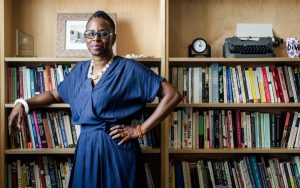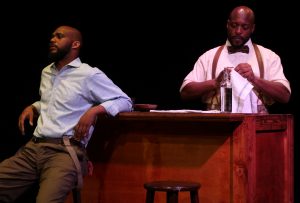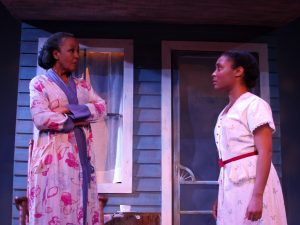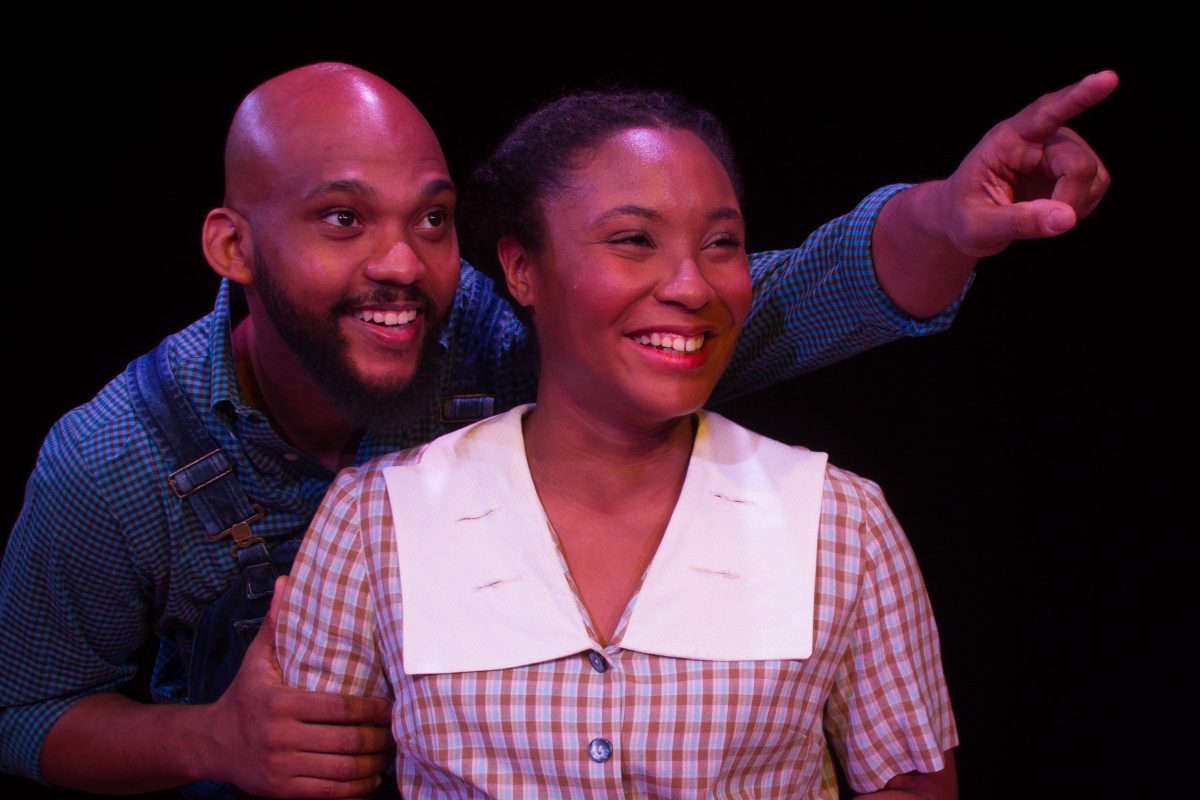If every action produces a series of consequences, imagine life if slavery or Jim Crow had never existed. Now, consider what has happened because they’ve existed.
That’s where the idea for Lisa B. Thompson’s play “Monroe” sparked.
“I want audiences to consider the ripple effect of racial violence on families and communities and how that continues for generations,” says Thompson, an associate professor of African and African Diaspora studies at The University of Texas at Austin.

“Monroe,” onstage at the Austin Playhouse through September 30, follows Cherry, a young African-American woman who, after the lynching death of her older brother, must decide whether preserving her family’s roots justifies living under Jim Crow in rural Louisiana in 1946.
Thompson was partly inspired by her own family history. Her father, from Lake Charles, and her mother, from Monroe, both migrated from Louisiana to the San Francisco Bay Area, during the Great Migration — a period from 1916-1970 characterized by a movement of more than 6 million African-Americans from the segregated south to the urban north.
Thompson actually wrote the play as a Stanford University graduate student in the nineties and had not revisited it for years until a friend suggested she submit it to local festivals. So, she did, and Monroe was a hit. It won recognition at the Austin Playhouse’s 2018 New Play Festival and was selected by director Lara Toner Haddock to open the 2018-19 season.

“When I found out that Lisa had actually worked on this play in grad school, I was stunned because it reads as such a contemporary piece,” Toner Haddock told KUT. “It’s set in 1946 but the themes, the subject matter, the way it deals with the violence against the African-American community feels like this is the play that needs to be told right now.”

Thompson understands her play’s timeless value and hopes her audiences will make connections between the Jim Crow era, when thousands of black people were lynched, and today.
“Lynchings were often done on the courthouse lawn in front of hordes of white citizens who came to witness it while wearing their Sunday best, sometimes with their young children,” Thompson says. “Today’s extrajudicial killings come to us as viral videos on social media and in the news; hordes of citizens consume these murders while drinking their morning coffee or during a break at work.
“How should we move forward in the aftermath of continued racial violence?” she asks. “How do we confront this legacy?”
Thompson is also a faculty affiliate in the Department of English, Department of Theater and Dance, the John L. Warfield Center for African and African American Studies, as well as the Center for Women’s and Gender Studies at UT Austin.
